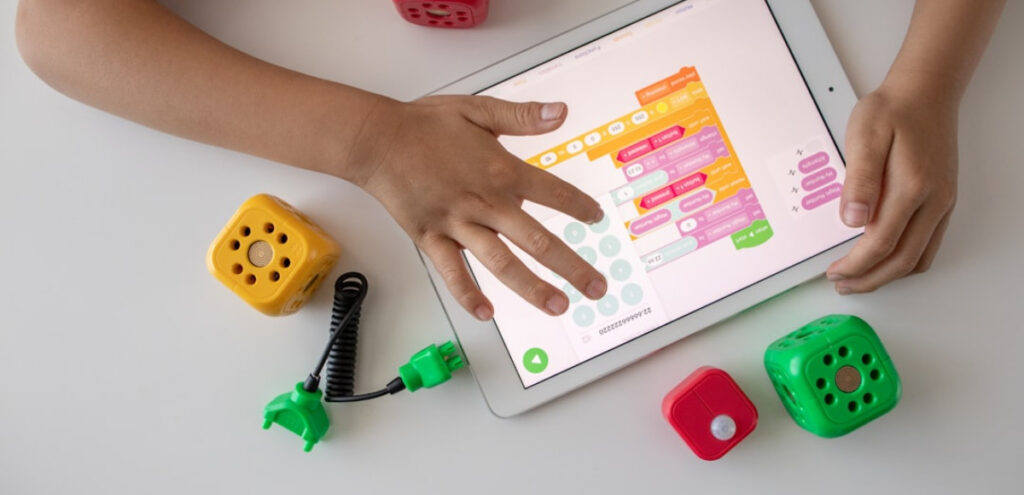Imagine a world where education ignites curiosity, unlocks potential, and empowers individuals to reach their full potential. This isn’t a utopian dream, but the very essence of quality education. However, the reality of education can vary greatly depending on location, resources, and access. In Pakistan, a country with a young and vibrant population, the pursuit of quality education (educational definition) takes center stage. It’s a cornerstone for individual growth, a driver of progress, and a key to a brighter future. But what exactly defines quality education in today’s world?
Introduction
This discussion delves into the heart of what constitutes a quality education experience. We’ll explore the key ingredients that go beyond rote memorization and textbook knowledge. We’ll connect the dots between quality education and the United Nations’ Sustainable Development Goal 4 (SDG 4) for inclusive and equitable learning opportunities. Furthermore, we’ll examine the specific challenges and opportunities surrounding quality education in Pakistan (education in Pakistan).
By understanding the importance of quality education for both individuals and society, we can spark a crucial conversation. We’ll explore the benefits of quality education, from unlocking economic opportunities to fostering stronger communities. Ultimately, the goal is to identify ways to work together and ensure everyone, regardless of background, has access to a truly transformative educational experience.

Quality Education: Not for Only Taking Positions
Education has long been recognized as a powerful tool for individual and societal advancement. However, the concept of a quality education extends far beyond simply acquiring knowledge from textbooks and achieving high scores. It encompasses a holistic approach that equips individuals with the necessary skills and values to thrive in a complex and ever-changing world.
Here are some key characteristics that define a quality education:
- Focus on Learning, Not Just Positions: A quality education prioritizes deep understanding and the ability to apply knowledge in real-world scenarios. It goes beyond rote memorization and standardized tests, encouraging students to develop critical thinking, problem-solving, and analytical skills.
- Engaged and Qualified Teachers: Effective educators play a pivotal role in fostering a quality learning environment. Passionate and skilled teachers create engaging lessons, cater to diverse learning styles, and provide personalized support to unlock each student’s potential.
- Nurturing the Whole Child: Quality education recognizes the importance of a student’s well-being, not just academic performance. It integrates social and emotional learning (SEL) programs that help students develop self-awareness, build healthy relationships, and manage emotions effectively.
- Curriculum Relevance and Real-World Application: A quality curriculum is relevant to a student’s life and future aspirations. It incorporates contemporary issues, encourages collaboration and innovation, and provides opportunities for students to apply their knowledge to real-world problems.
- Equitable Access and Inclusivity: Quality education ensures that all students have the opportunity to succeed, regardless of their background, socioeconomic status, or abilities. This includes providing necessary learning resources, accommodations for diverse learners, and fostering a safe and inclusive learning environment.
- Technology as a Tool, Not a Replacement: Technology like AI can be a powerful tool for enhancing learning, but it shouldn’t replace traditional teaching methods. A quality education effectively integrates technology to promote active learning, collaboration, and access to information.
It’s important to remember that defining quality education is an ongoing conversation. The specific needs and goals of a quality education may vary depending on the context, culture, and aspirations of a particular community. However, by focusing on these core principles, we can create educational experiences that truly empower individuals and contribute to a more just and prosperous society.
Why Quality Education Matters: A Ripple Effect of Positive Change
Quality education isn’t just about good grades or checking boxes on a curriculum. It’s a transformative experience with far-reaching benefits that impact individuals and society as a whole. Here’s a closer look at why quality education matters:
Individual Empowerment:
- Economic Opportunities: A quality education equips individuals with the knowledge and skills employers seek. This translates into higher earning potential, access to better job opportunities, and greater career mobility.
- Personal Growth: Quality education fosters critical thinking, problem-solving, and decision-making skills. It instills confidence, promotes self-awareness, and encourages individuals to become lifelong learners, adaptable to a changing world.
- Improved Health Outcomes: Education empowers individuals to make informed choices about their health and well-being. It fosters health literacy, enabling people to understand health information, make preventive decisions, and seek appropriate healthcare.
- Active Citizenship: Quality education cultivates a sense of civic responsibility and critical thinking skills. It empowers individuals to participate actively in their communities, advocate for change, and contribute to a more just and democratic society.
Societal Benefits:
- Economic Growth and Innovation: A well-educated population fuels economic growth. Individuals with diverse skill sets drive innovation, technological advancements, and entrepreneurship, leading to a more prosperous society.
- Reduced Inequality: Quality education acts as a social equalizer. By providing equal access to quality learning opportunities, regardless of background, it breaks the cycle of poverty and creates a fairer society.
- Stronger Communities: Quality education fosters tolerance, understanding, and respect for diversity. Educated individuals are better equipped to collaborate, solve problems collectively, and build stronger communities.
- Global Competitiveness: A well-educated workforce is crucial for a nation’s global competitiveness. Quality education equips individuals to contribute meaningfully on a global stage, fostering international cooperation and collaboration.
The Ripple Effect: The benefits of quality education go beyond immediate results. They create a ripple effect, impacting future generations and contributing to a more sustainable and prosperous world. By investing in quality education, we invest in the future, empowering individuals to become agents of positive change and building a brighter tomorrow for all.
The Next Generation of Quality Education in Pakistan: What Students Can Do?
Pakistan’s young population presents a tremendous opportunity for the nation’s future. However, to truly unlock their potential, the education system must evolve to meet the demands of the 21st century. Here’s what the next generation of quality education in Pakistan requires:
Focus on Skills for the Future:
- STEM Education: Science, Technology, Engineering, and Math (STEM) education should be a core focus. Interactive learning environments equipped with advanced technology will enable students to develop critical thinking, problem-solving, and technological fluency, preparing them for the jobs of tomorrow.
- Entrepreneurship and Innovation: Nurturing a culture of innovation and entrepreneurship is key. Curriculums can incorporate project-based learning, design thinking, and business skills, empowering students to become innovators and problem-solvers who can contribute to Pakistan’s economic growth.
Building a Culture of Lifelong Learning:
- Digital Literacy: Equipping students with digital literacy skills is essential. They should be able to access information critically, evaluate online resources, and leverage technology for learning and communication effectively.
- Adaptability and Continuous Learning: The ability to learn and adapt throughout life is crucial. Curriculums should incorporate courses that foster critical thinking, communication skills, and a growth mindset, preparing students to navigate the ever-changing world.
Personalized Learning and Equity:
- Leveraging Technology for Individualized Instruction: Technology can be a powerful tool for personalized learning. Adaptive learning platforms and online resources can cater to diverse learning styles and paces, ensuring every student receives the support they need to thrive.
- Early Childhood Education: Investing in high-quality early childhood education is critical. Early intervention programs can help bridge the achievement gap and prepare all children for success in later years.
- Addressing Equity Issues: Inequalities in access to quality education based on gender, location, or socioeconomic background must be addressed. Targeted resources, scholarships, and teacher training programs can ensure all students have a fair chance to excel.
Engaging the Next Generation of Educators:
- Attracting and Retaining Top Talent: Attracting and retaining passionate and qualified teachers is vital. Competitive salaries, professional development opportunities, and support systems can create a more attractive teaching profession.
- Empowering Teachers as Leaders: Teachers should be empowered to innovate, experiment with new teaching methods, and tailor curriculums to their students’ needs. Professional development should focus on integrating technology, developing culturally responsive pedagogy, and fostering student-centered learning environments.
Collaboration and Community Involvement:
- Public-Private Partnerships: Collaboration between the public and private sectors can leverage resources and expertise to improve education infrastructure, provide teacher training programs, and develop innovative learning tools.
- Community Engagement: Parents, community leaders, and businesses all have a role to play. Building strong partnerships between schools and communities can create a supportive environment for student learning and empower communities to hold schools accountable for quality education.
By embracing innovation, prioritizing equity, and fostering a culture of lifelong learning, Pakistan can usher in the next generation of quality education. This will equip the nation’s youth with the skills and knowledge they need to become active citizens, drive economic growth, and contribute to a brighter future for Pakistan.
Our Call to Action:
Quality education is not a luxury; it’s a necessity. Together, students, educators, policymakers, and communities can work towards achieving this goal. We, the students, urge you to invest in quality education. Provide us with the resources and opportunities we need to thrive. Let’s build a future where every student in Pakistan has the chance to excel and contribute to a brighter tomorrow.
Student FAQs on Quality Education in Pakistan
Here are some frequently asked questions (FAQs) about quality education in Pakistan, along with answers from a student’s perspective:
1. What are the biggest challenges students face in getting a quality education in Pakistan?
Answer: Class sizes can be large, making it difficult for teachers to give individual attention. Resource limitations sometimes restrict access to the latest technology and learning materials. Additionally, some teaching methods may prioritize rote memorization over critical thinking and problem-solving skills.
2. What does a quality education system look like for students in Pakistan?
Answer: We envision a system with smaller class sizes, passionate and well-trained teachers who use engaging methods. The curriculum should be relevant to our lives and prepare us for future careers. We want access to technology and resources that enhance learning, fostering a safe and supportive environment where collaboration and exploration are encouraged.
3. How can quality education benefit students like us?
Answer: Quality education equips us with the skills needed to succeed. It allows us to think critically, solve problems creatively, and become lifelong learners. This empowers us to pursue our dreams, break the cycle of poverty, and contribute meaningfully to Pakistan’s future. It gives us a voice and the ability to become active and informed citizens.
4. What can students do to advocate for quality education?
Answer: Students can voice their concerns and suggestions to school administrators, teachers, and parents. We can participate in student councils and discussions about education reform. We can also use social media platforms to raise awareness about the importance of quality education in Pakistan.
5. Is there hope for achieving quality education for all students in Pakistan?
Answer: Absolutely! Students, educators, policymakers, and communities can work together to achieve this goal. By advocating for increased investment in education, improved teacher training, and innovative learning methods, we can create a future where every student has access to a quality education. Remember, our voices matter. Let’s continue this conversation and work towards a brighter future for education in Pakistan.
Here are some resources you can use to learn more about quality education in Pakistan:
Government Websites:
- Ministry of Education, Government of Pakistan: https://www.mofept.gov.pk/
- Higher Education Commission (HEC) of Pakistan: https://www.hec.gov.pk/
International Organizations:
- United Nations Sustainable Development Goal 4 (SDG 4) on Education: https://sdgs.un.org/2030agenda
- UNESCO Institute for Statistics (UIS): https://uis.unesco.org/
Reports and Articles:
- World Bank – In Pakistan, Quality Education Requires A Different Approach—and More Investment: https://www.worldbank.org/en/news/feature/2022/09/08/paving-the-way-to-education-and-opportunity-in-pakistan
- A review of Pakistan Education Quality and System (ERIC): https://blogs.worldbank.org/en/endpovertyinsouthasia/pakistan-quality-education-requires-different-approach-and-more-investment
- Minimum Standards for Quality Education in Pakistan (UNESCO): https://planipolis.iiep.unesco.org/sites/default/files/ressources/minimum_standards_for_quality_education_in_pakistan.pdf
Additional Resources:
- Aagahi – A Pakistani NGO working on education: https://www.agahi.org.pk/
- Malala Fund – Advocating for girls’ education globally: https://malala.org/
News Sources:
- Dawn (Pakistan): https://www.dawn.com/
- The Express Tribune (Pakistan): https://tribune.com.pk/
Please note: These resources are just a starting point. Many other organizations and publications discuss quality education in Pakistan.
more information and udpates visit abcexpress.pk

